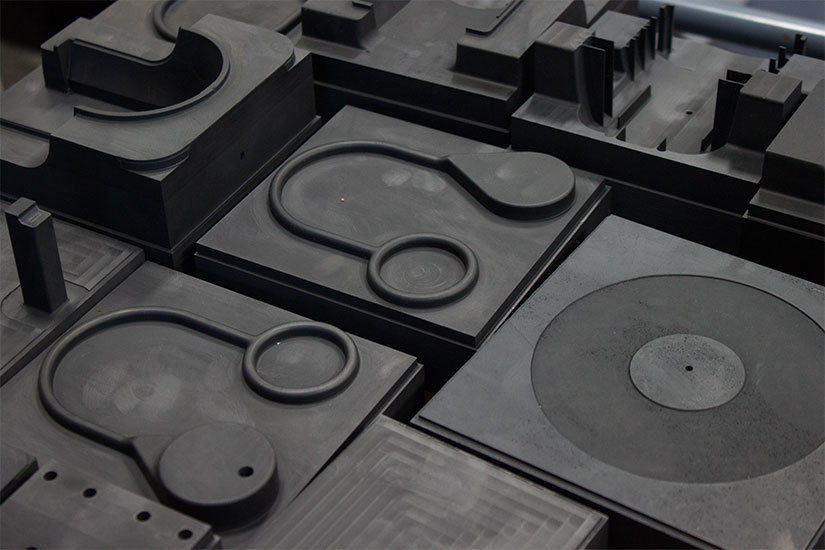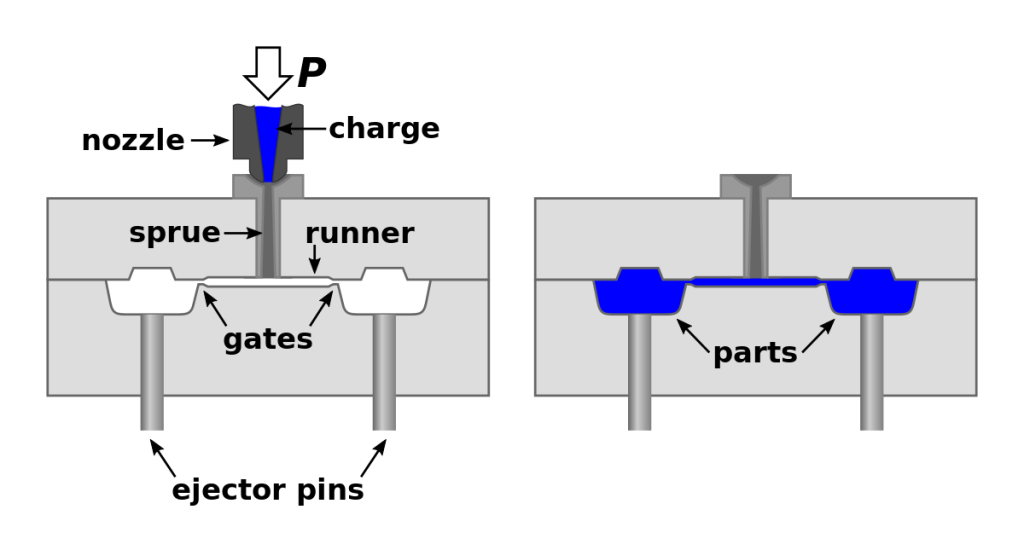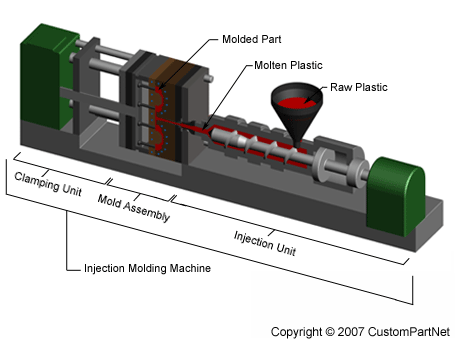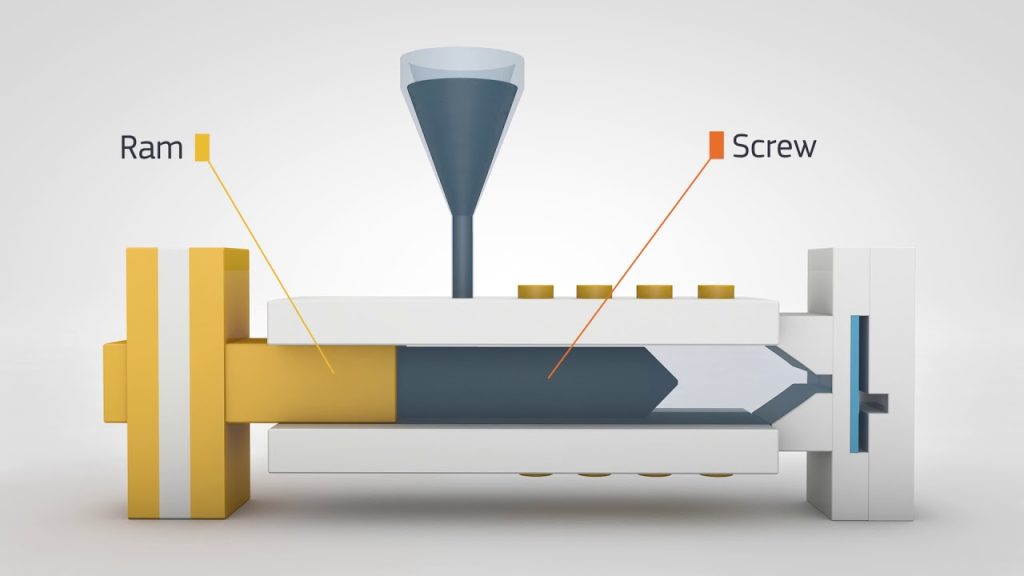Table of Contents
Nylon is a versatile and durable material that is widely used in various industries, ranging from automotive to fashion. However, when it comes to the manufacturing process, one question arises: can nylon be injection molded? Injection molding is a popular method for producing plastic parts, and knowing whether nylon can be used in this process is crucial for manufacturers. In this article, we will explore the answer to this question and discuss the benefits and challenges of injection molding nylon.
Injection molding has many advantages, such as high production efficiency and low manufacturing costs. But the process requires the material to have certain characteristics, such as good flowability and thermal stability, to produce high-quality parts. Nylon is known for its excellent mechanical properties, but its high viscosity and moisture absorption can make it challenging to use in injection molding. Let’s delve deeper into the topic and find out if nylon can be injection molded and how manufacturers can overcome the challenges.
Can Nylon Be Injection Molded?
Nylon is a widely used thermoplastic material that has excellent mechanical properties, heat resistance, and chemical resistance. This material is a popular choice for injection molding due to its strength, durability, and versatility. But can nylon be injection molded? The answer is yes, nylon can be injection molded, and it is one of the most commonly used materials for this process. In this article, we will discuss the process of injection molding nylon, its benefits, and its limitations.
What is Injection Molding?
Injection molding is a manufacturing process used to produce parts in large quantities. The process involves melting plastic pellets, injecting the molten material into a mold, and cooling the mold to solidify the material. Injection molding is a cost-effective and efficient way to produce high-quality plastic parts with precise dimensions and complex geometries.
The process of injection molding is ideal for producing parts made from nylon. Nylon can be molded into a wide range of shapes and sizes, making it ideal for use in a variety of industries, including automotive, aerospace, and consumer goods.
The Process of Injection Molding Nylon
The process of injection molding nylon involves several steps. The first step is to dry the nylon pellets to remove any moisture. Moisture can cause defects in the final product, so it is important to dry the pellets thoroughly.
The next step is to melt the nylon pellets in an injection molding machine. The molten nylon is then injected into a mold, where it cools and solidifies. The mold is then opened, and the part is ejected.
The process of injection molding nylon requires careful control of temperature, pressure, and cooling time to ensure that the final product is of high quality. Nylon has a high melting point and can be processed at high temperatures, which makes it ideal for injection molding.
The Benefits of Injection Molding Nylon
Injection molding nylon offers several benefits, including:
- Strength and Durability – Nylon is a strong and durable material that can withstand high stress and impact.
- Chemical Resistance – Nylon is resistant to many chemicals, making it ideal for use in harsh environments.
- Heat Resistance – Nylon can withstand high temperatures without losing its properties, making it ideal for use in high-temperature applications.
- Versatility – Nylon can be molded into a wide range of shapes and sizes, making it ideal for use in a variety of industries.
The Limitations of Injection Molding Nylon
While injection molding nylon offers many benefits, there are also some limitations to consider. These include:
- Shrinkage – Nylon has a high shrinkage rate, which can cause parts to warp or deform if not properly designed.
- Moisture Absorption – Nylon absorbs moisture, which can affect the properties of the material and cause defects in the final product.
- Cost – Nylon is more expensive than some other thermoplastic materials, which can affect the cost of production.
Nylon vs. Other Thermoplastic Materials
Nylon is just one of many thermoplastic materials that can be used for injection molding. Other materials include:
- ABS – A strong and durable material that is easy to mold and has good heat resistance.
- Polycarbonate – A transparent and impact-resistant material that is ideal for use in applications where clarity is important.
- Polypropylene – A lightweight and flexible material that is resistant to chemicals and moisture.
While each material has its own advantages and disadvantages, nylon remains a popular choice for injection molding due to its strength, durability, and versatility.
Conclusion
In conclusion, nylon can be injection molded, and it is a popular choice for producing high-quality plastic parts with precise dimensions and complex geometries. The process of injection molding nylon requires careful control of temperature, pressure, and cooling time to ensure that the final product is of high quality. While there are some limitations to consider, such as shrinkage and moisture absorption, the benefits of injection molding nylon, including strength, durability, and chemical resistance, make it an ideal choice for a wide range of applications.
Frequently Asked Questions
Can Nylon Be Injection Molded?
Yes, nylon can be injection molded. It is a common thermoplastic material that is widely used in the manufacturing sector. Injection molding is a popular manufacturing process that involves melting the nylon pellets and injecting them into a mold cavity. The molten nylon is then cooled and solidified to form the desired shape. This process is used to produce a wide range of products, including automotive parts, electronic components, medical devices, and consumer products.
Injection molding is an efficient and cost-effective way to produce high-quality nylon parts. It allows for the creation of complex shapes with consistent dimensions and excellent surface finish. Nylon’s ability to withstand high temperatures and chemical exposure makes it an ideal material for injection molding. By using the right injection molding parameters, it is possible to produce nylon parts that are strong, durable, and resistant to wear and tear.
What Are the Advantages of Injection Molded Nylon?
Injection molded nylon has several advantages over other materials. Firstly, it is lightweight and has a high strength-to-weight ratio, making it ideal for applications where weight is a critical factor. Secondly, it has excellent chemical resistance, making it suitable for use in harsh environments. Thirdly, it is easy to mold into complex shapes, allowing for the creation of intricate parts with tight tolerances. Fourthly, it has good dimensional stability, ensuring consistent performance over time. Finally, it is a cost-effective material, making it a popular choice for high-volume manufacturing applications.
The use of injection molded nylon has become increasingly popular in recent years due to its versatility and durability. It is used in a wide range of industries, including automotive, aerospace, medical, and consumer goods. Whether it’s for a simple housing or a complex component, injection molded nylon offers a range of benefits that make it an excellent choice for many applications.
In conclusion, the answer to the question “Can Nylon Be Injection Molded?” is a resounding yes. Nylon is a popular thermoplastic material that can be easily molded using injection molding techniques. With its superior strength, durability, and versatility, nylon is a popular choice for a wide range of applications, from automotive and aerospace to consumer goods and medical devices.
Injection molding is a highly efficient and cost-effective way to produce large quantities of high-quality nylon parts. By injecting molten nylon into a mold under high pressure, manufacturers can create complex shapes and geometries with precise tolerances and minimal waste. This makes nylon injection molding an ideal solution for many industrial and commercial applications.
Overall, nylon injection molding is a reliable and effective way to produce high-quality nylon parts. Whether you need small, intricate components or large, complex assemblies, nylon injection molding can help you achieve your manufacturing goals. So, if you’re looking for a durable, versatile, and cost-effective material for your next project, consider nylon and its injection molding capabilities.
Request a quote today!
[contact-form-7 id="1578" title="Contact form"]
Please compress the file into a ZIP or RAR file before uploading. Alternatively, send through your RFQ by email.
enquires@unitymanufacture.com





